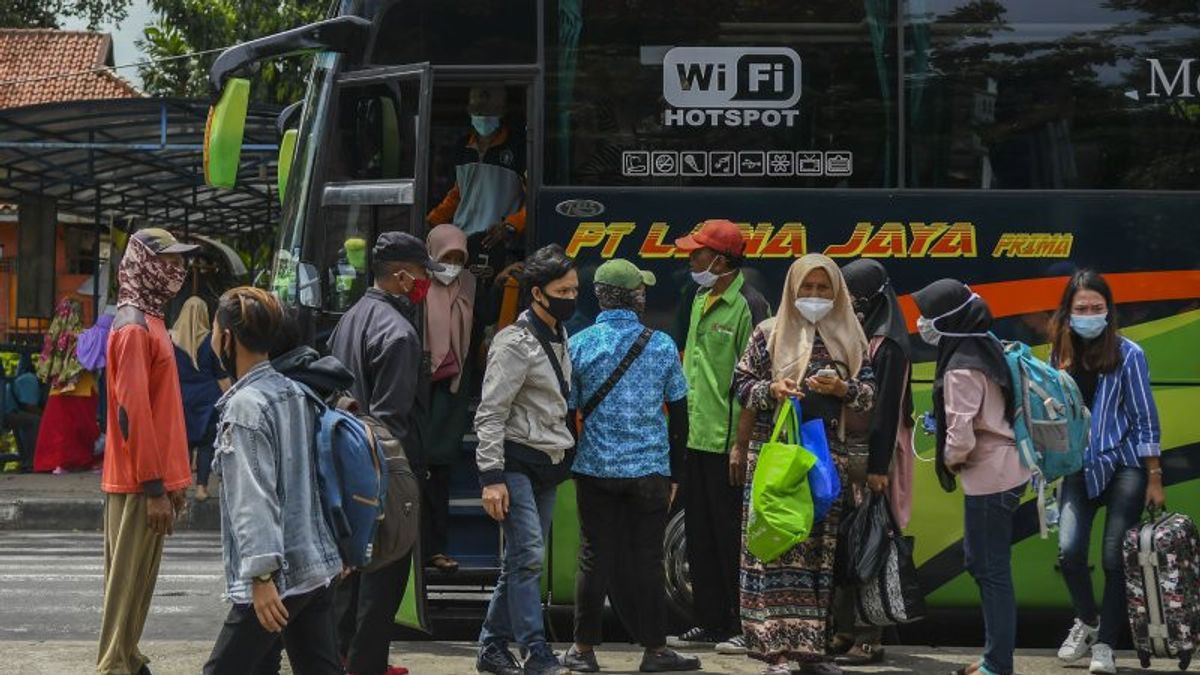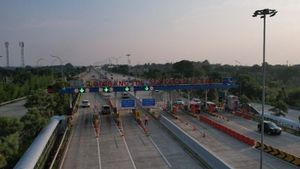JAKARTA - The government officially bans Eid homecoming this year. This was decided based on a coordination meeting between several ministries and agencies.
The Coordinating Minister for Human Development and Culture of Indonesia (Menko PMK) Muhadjir Effendy said the ban on going home applies to all ASN, TNI, National Police, BUMN employees, private employees, independent workers, to the entire community.
Then, the ban on going home will start from May 6 to May 17, 2021. "On that day and date, people are advised not to carry out movements or activities outside the region, unless it is really urgent and necessary", Muhadjir said some time ago.
Also, the Eid al-Fitr joint leave was shortened to just one day. That way, collective leave only applies on May 12, 2021, which falls on a Wednesday. Then, the first and second day of Eid al-Fitr falls from May 13th and 14th.
In response to this, a transportation observer from the Indonesian Transportation Society, Djoko Setijowarno, said that if the government is serious about banning it, there is an easy way.
Within the date range set for the homecoming ban, the government can suspend all transportation operations at airports, passenger terminals, train stations, and ports.
"There is no need for exceptions, so the results will be more beneficial. We need to consider using the phrase prohibit, but there will still be many exceptions made", said Djoko on Monday, March 29.
However, there is one thing that cannot escape the attention of President Joko Widodo, namely attention to the economic impact of the transportation business. Djoko said that employers and transportation workers really felt the sluggish economy from last year's Eid homecoming policy.
This is because the direct cash assistance (BLT) program proposed by the Land Transportation Organization has not been taken seriously by the government. There was assistance to public transportation drivers for three months, in fact, it was not delivered on target.
"Ojek drivers actually get the assistance. There is no coordination with the local Organda. None of the government agencies has the correct data on public transportation drivers", he said.
On the other hand, the government also does not provide relaxation of taxes and levies such as PKB, BBNKB, PBB, advertisement tax, UKB, parking fees, and emplacement for the implementation of public transportation in the regions.
The government still considers public transportation as a potential source of regional income. Public transportation is considered as part of the necessities of life which must have the support of all parties.
"Therefore, all central and regional government agencies need to work together to assist the land public transportation business so that the sustainability of the land public transportation business is maintained", he concluded.
The English, Chinese, Japanese, Arabic, and French versions are automatically generated by the AI. So there may still be inaccuracies in translating, please always see Indonesian as our main language. (system supported by DigitalSiber.id)













